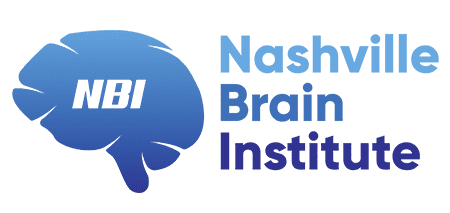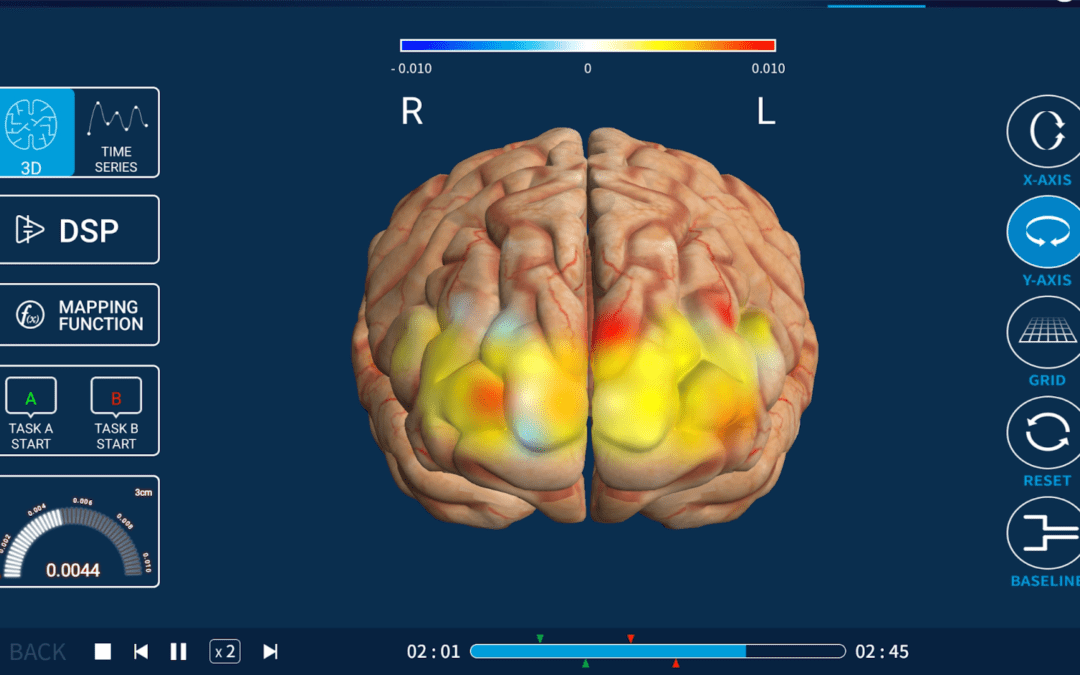In the evolving landscape of neurology and mental health treatment, brain imaging technologies have become indispensable tools. These techniques allow clinicians to peek inside the brain, facilitating the diagnosis and management of various neurological and psychiatric conditions.
Among the numerous imaging methods available, three stand out for their unique capabilities and applications:
-
-
- Functional Near-Infrared Spectroscopy (fNIRS),
-
-
-
- Functional Magnetic Resonance Imaging (fMRI)
-
-
-
- Single Photon Emission Computed Tomography (SPECT).
-
Functional Magnetic Resonance Imaging (fMRI)
How it Works:
fMRI is a type of MRI that measures and maps brain activity by detecting changes in blood flow. When a brain region is more active, it consumes more oxygen, and fMRI can detect these changes through the blood-oxygen-level-dependent (BOLD) contrast.
Benefits:
-
-
- High Spatial Resolution: fMRI provides high-resolution images of brain activity, allowing for precise localization of neural activity. This is beneficial for research and diagnostic purposes where detailed brain maps are required.
-
-
-
- Comprehensive Data: fMRI can capture a wealth of information about brain function, structure, and connectivity, making it a versatile tool for studying various neurological and psychiatric conditions.
-
Drawbacks:
-
-
- Cost and Accessibility: fMRI scans are expensive, often costing thousands of dollars per session. This can be prohibitive for many patients and healthcare providers.
-
-
-
- Immobility and Invasiveness: The fMRI machines are large and require the patient to remain still in a confined space, which can be uncomfortable and impractical for some individuals, especially those with claustrophobia or certain mental health conditions.
-
Single Photon Emission Computed Tomography (SPECT)
How it Works: SPECT imaging involves injecting a radioactive tracer into the bloodstream, which then travels to the brain. A gamma camera detects the radiation emitted by the tracer, creating images that reflect blood flow and brain activity.
Benefits:
-
-
- Functional Imaging: SPECT provides valuable functional information about brain activity, which can be used to diagnose and monitor various conditions, including epilepsy, dementia, and traumatic brain injuries.
-
-
-
- Long-Lasting Tracer: The tracers used in SPECT have longer half-lives, allowing for prolonged imaging sessions that can capture brain activity over extended periods.
-
Drawbacks:
-
-
- High Cost: SPECT scans are among the most expensive imaging methods, starting at around $5,000. This makes it less accessible for routine use in clinical settings.
-
-
-
- Radiation Exposure: The use of radioactive tracers introduces a level of risk, as patients are exposed to radiation. This can be a concern, especially for repeated scans.
-
-
-
- Limited Resolution: SPECT provides lower resolution images compared to fMRI, which can limit its ability to detect fine details in brain activity.
-
Functional Near-Infrared Spectroscopy (fNIRS)
How it Works: fNIRS is a non-invasive imaging method that uses near-infrared light to measure brain activity. The technique involves placing sensors on the scalp, which emit near-infrared light into the brain. This light is absorbed by oxygenated and deoxygenated hemoglobin, and the sensors detect the reflected light. By analyzing these reflections, fNIRS provides insights into blood flow and oxygenation levels in the brain, indicating neural activity.
Benefits:
-
-
- Cost-Effective: One of the most significant advantages of fNIRS is its affordability. At Nashville Brain Institute, we offer fNIRS scans for as low as $250, making it accessible to a broader range of patients compared to other imaging methods like SPECT.
-
-
-
- Portability and Accessibility: fNIRS devices are portable and easy to use, allowing for flexible and frequent monitoring of brain activity. This is particularly beneficial for mental health settings where continuous assessment may be necessary.
-
-
-
- Real-Time Monitoring: fNIRS provides real-time data, enabling clinicians to observe immediate changes in brain activity. This is valuable for tracking the effectiveness of treatments and making timely adjustments.
-
fNIRS: A Superior Choice for Mental Health Treatment
At Nashville Brain Institute, we believe that fNIRS offers several distinct advantages over fMRI and SPECT, particularly in the context of mental health treatment:
-
-
- Affordability: With a significantly lower cost ($250) compared to SPECT ($5,000), fNIRS is a more accessible option for patients seeking mental health care. This affordability allows for more frequent monitoring and adjustments to treatment plans without the financial burden.
- Non-Invasive and Comfortable: fNIRS is non-invasive, requiring only sensors placed on the scalp. This makes it a more comfortable and less intimidating experience for patients, particularly those with anxiety or other mental health conditions.
- Real-Time Feedback: The ability of fNIRS to provide real-time feedback on brain activity is invaluable for guiding treatment. Clinicians can observe how the brain responds to various interventions immediately, allowing for dynamic adjustments to therapeutic approaches.
- Portability: The portability of fNIRS devices means they can be used in various settings, including clinics, hospitals, and even patients’ homes. This flexibility enhances the ability to monitor patients in their natural environments, providing more accurate and relevant data.
-
Conclusion
While fMRI and SPECT have their respective strengths and applications, fNIRS stands out as a cost-effective, non-invasive, and practical tool for guiding mental health treatments. At Nashville Brain Institute, we are committed to utilizing fNIRS to provide our patients with accessible, real-time insights into their brain activity, ultimately enhancing the effectiveness of our treatments. If you’re interested in learning more about fNIRS or scheduling a scan, please visit our website at www.nashvillebraininstitute.com.
By leveraging the unique advantages of fNIRS, we aim to make cutting-edge brain imaging accessible to all, supporting our mission to improve mental health care through innovative, patient-centered approaches

